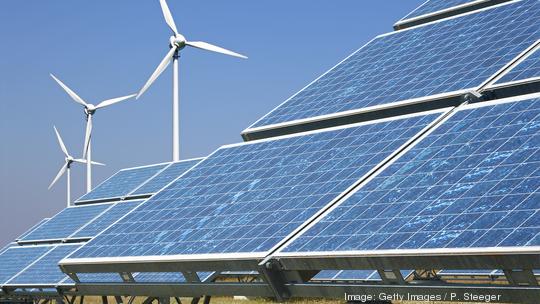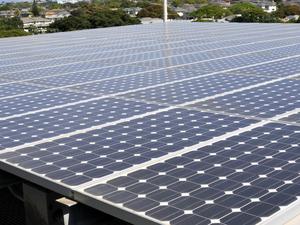
Texas is known as an energy state. Austin has become a hub of clean-tech innovation. Yet, when the temperatures dropped in February, most of the state was left in the dark ages.
By now, many are well aware that the lack of winterization on the state's natural gas power plants played a significant roll in the failure. That's not particularly new technology. It just wasn't there.
Meanwhile, the state, its people and hundreds of technologists are facing a big question: Will this be a moment to spur innovation in local and state power grids, boost the use of solar panels and storage batteries in homes and nudge the Lone Star State into a brighter future?
There is a lot of optimism among entrepreneurs, between significant merger and acquisition activity in the clean-tech sector and more than a dozen promising startups taking on this massive problem through hardware, software and education.
Yet, there aren't many easy answers to the problem at hand. And in mid-April the state's grid was once again strained, this time on an 85 degree day, leaving some without power for a few hours.
Some of the blame falls on big energy companies, some falls on lawmakers and some falls on the lack of private sector investment for risky moonshots that involve capital-intensive hardware.
That said, Austin has for years been building toward a greener future, as has the state.
Investing in a transition to cleaner energy
Craig Lawrence, co-founder of Energy Transition Ventures, a newly launched venture fund focused on renewable energy tech, said Texas is already investing heavily in renewables. That's due, in part, to the ever-lowering cost of solar panels and the infrastructure that supports them.
"When it comes to solar and wind and battery storage, I think we're not really in innovation mode, we're in a deployment mode," he said.
Environmentalists and government are no longer the only forces pushing for an expansion of renewables.
"This is beyond meeting that government push, this is now an economic phenomenon," he said.
For energy-tech startups, finding funding for big ideas has been a rollercoaster in recent years.
In the early 2000s, there was a surge of investment in clean tech. Lawrence worked at Accel Partners in the Bay Area from 2008 to 2010, when the firm made several investments in companies such as SunRun, which went public, and OPWR, which was acquired by Oracle.
But firms nationwide also experienced plenty of flops after investing in research-stage solar technologies, which scared some investors away.
Now things are picking back up, fueled by a renewed understanding of climate change, a frothy investment market and signals that the federal government will help encourage more development of renewable energy.
Last year, a study of climate tech by PricewaterhouseCoopers and Dealroom.co found that over the past seven years, climate-tech investing has seen exponential investment growth. In 2013, the firm identified about $418 million of investment in climate tech. In 2019, that number climbed to $16.1 billion.
And the money doesn't just flow to big players, although $100 million-plus deals account for a majority of investment. Early stage investing in climate tech climbed from 35 deals in 2013 to 353 deals in 2019, the study shows.
While venture firms have been increasingly active, it is often big energy companies such as Shell and Chevron that clean-tech startups turn to first for funding. And, when that doesn't work, startups often have to seek funding on the coasts.
But Lawrence said that's changing.
Energy Transition Ventures, which bills itself as the first firm targeting energy resiliency, is raising a $75 million fund to invest in energy startups across North America. The firm is based in Houston, with Lawrence operating out of Austin. It has already started investing, and has at least one Texas startup on its radar.
The recent power grid failures in Texas are certainly top of mind right now, Lawrence said.
"I think it will lead to more activity, whether that helps startups is unclear," he said.
One of the challenges facing Texas startups working on energy issues is that the sector is so complex, said Erin Keys, director of sustainability at the Austin Technology Incubator at the University of Texas.
She said one of the keys to Texas' energy future is outreach and education. It's about empowering consumers with information about where their energy comes from, how an investment in solar panels might pay off over time and how consumption can be moderated to reduce usage and costs. That in itself is complex because most jurisdictions in Texas have significantly different energy providers and sources.
Keys said that intricacy, plus the expense of launching an energy-tech product intended for large utilities, leads many early stage companies to focus first on selling to commercial entities.
"They don't start selling to utilities, because it's hard," she said. "They're very cost sensitive. They're very regulatory hampered. And the sales cycle is incredibly long."
Texas potential
Meanwhile, Austin and the rest of Texas continue to attract new energy companies every day.
One of them is Bulb, a renewable retail electricity provider. It launched in the United Kingdom about five years ago and has become one of the fastest-growing energy companies there, now supplying energy to about 1.7 million homes. It picked Austin for its U.S. headquarters. It has about 10 employees here now, and it says its rate of growth is even faster here than in its early days in the U.K.
"Contrary to public belief, Texas actually is extremely green and extremely renewable," said Vinnie Campo, country manager of Bulb. "And that's a trend that we're going to see continue in the next five or 10 years."
For example, Texas already produces more wind power and has more wind farms under construction than any other state, according to the American Wind Energy Association. And the state is on track to surpass California as the top solar energy producer in a few years.
But Campo sees some of the same complications that others in the industry have noted.
"I think if you look at the ecosystem on its on the surface, it seems quite simple," he said. "But there's so many different entities that are involved from a governmental perspective to public and private companies, to developers to the consumer. And so innovation needs to happen on all of those fronts."
If entrepreneurs and utility leaders are able to do so, Texas has the opportunity to make history in the sector once again, he said.
"Texas started out as the energy capital of the U.S." Campo said. "What's exciting is that you're actually seeing a pivot of that to become the clean energy capital of the U.S. So you're seeing there's incubators that are popping up in Houston, and Texas is really taking the lead on renewable development."
Clean-tech insights from across the Inno network
American Inno now has publications in 15 markets, and writers in each city have been taking deep looks at clean-tech startups, major utilities and local leaders. Check out some of those recent stories below.
Houston Inno: How a Houston oil giant is pushing the needle on commercial-scale direct air capture
North Texas Inno: 'We're just wasting energy': UT Arlington research aims to commercialize new green technology
Chicago Inno: Illinois has a growing cleantech industry—but many companies still struggle to raise venture funding
Charlotte Inno: Is clean energy the key to Charlotte's future? City leaders and corporate executives think so
Richmond Inno: Richmond’s clean tech startups embrace industry momentum
BostInno: Boston startups are preparing for an electric vehicle future
Cincy Inno: It's electric: Inside a Cincy startup's drive to dominate EV charging
Rhode Island Inno: Startups moving to Rhode Island with eye on bluetech industry
Chicago Inno: S2G Ventures' $1B bet on a healthier planet
Minne Inno: A growing food tech scene is sustainably building on Minnesota's old strengths
Atlanta Inno: Nexus Fuels turns plastic back to oil. With the help of Cox Enterprises, it's ready to scale. – Here are 5 Atlanta startups working toward a sustainable future







